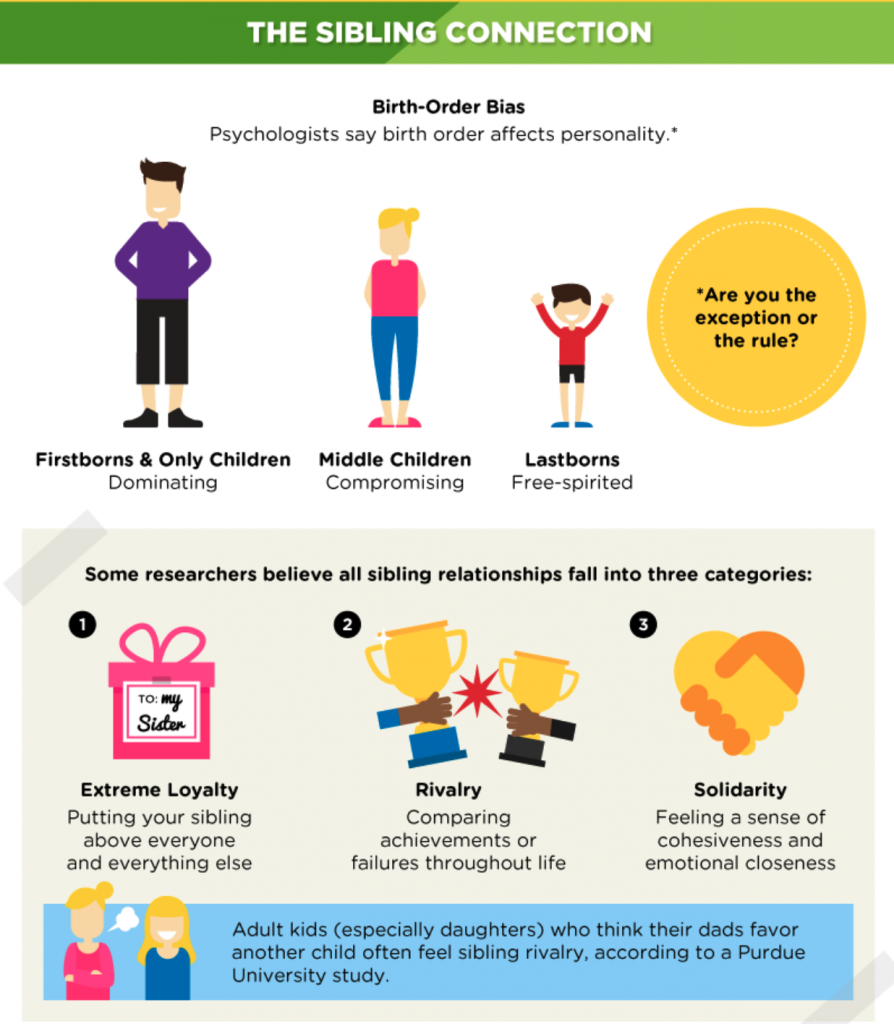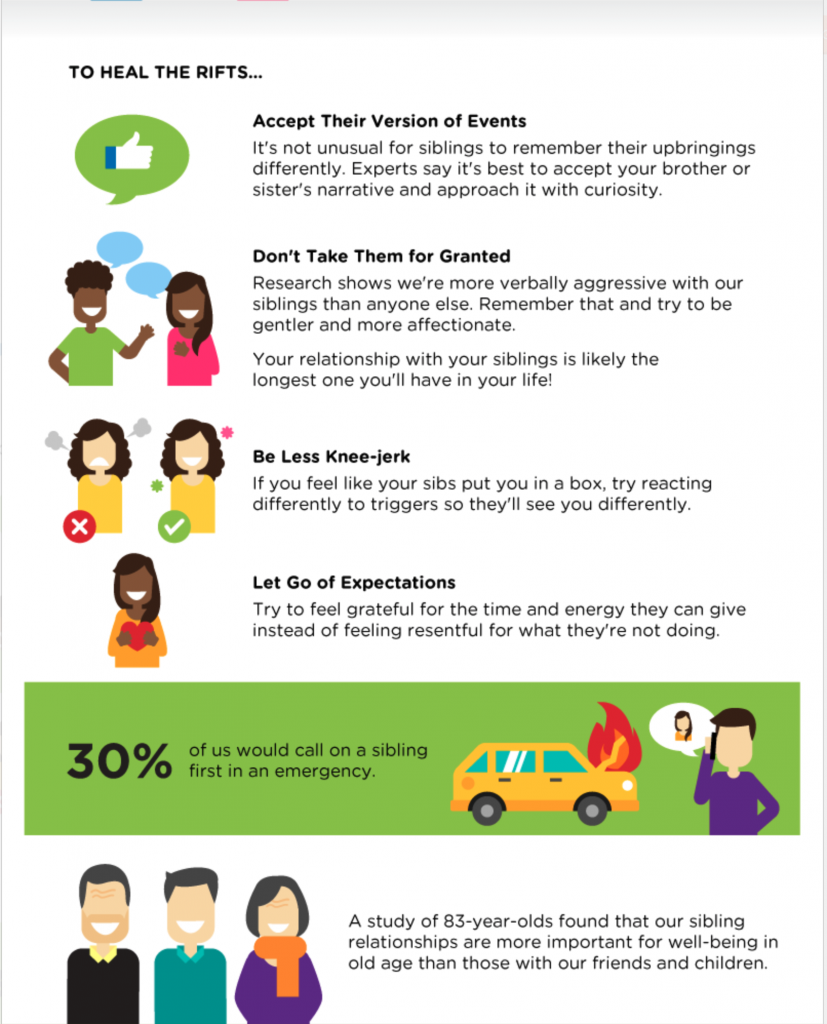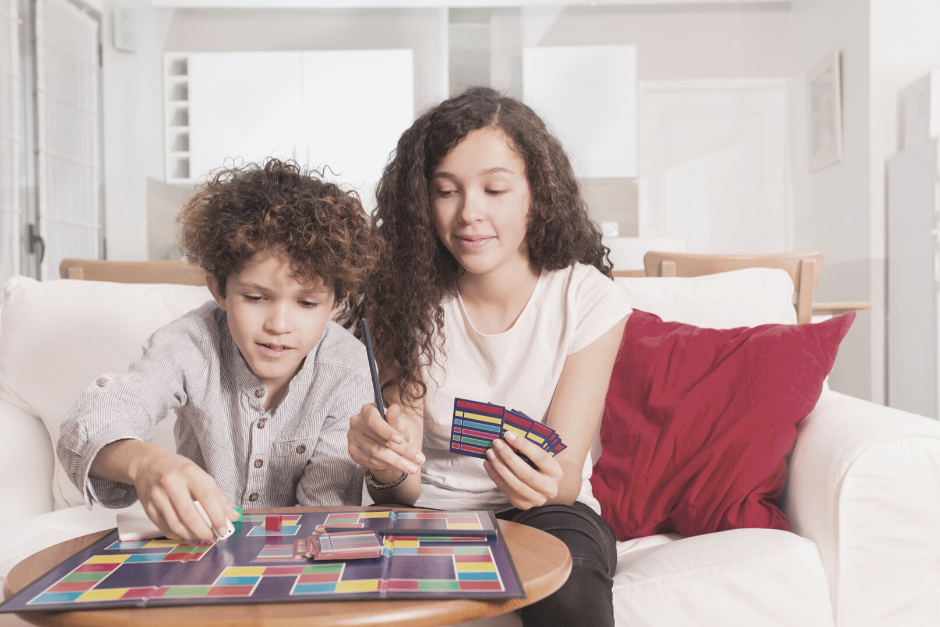All of us who grew up with brothers or sisters, know the extreme feelings our siblings can bring out in us – both positive and negative. At one moment they can feel like our closest friends and allies. At another, our passionately despised enemies.
The sibling relationship is like no other. It is non-elective and lifelong. During our childhood, we spend more time with our siblings than anyone else. Through our siblings, we develop our social understanding and pick up many of our behaviors, attitudes and beliefs. Siblings usually live in the same household and are similarly exposed to the same family dynamics, dysfunction, parental substance use or abuse. They can be role models, protectors and caregivers as well as bullies and rivals.
These complex relationships can have a significant impact on a person’s mental health and wellbeing. Therefore, at times, it is beneficial to work together with siblings in the therapeutic setting. In my practice, I’m pleased to say that siblings (and sometimes even cousins) support each other as they navigate a range of mental and behavioral health issues together.

Sibling Impact
A 2012 study on sibling relationships found several ways siblings influence one another during their formative years:
- Development: The relationship with siblings affects a child’s social, cognitive, and emotional development.
- Friendship: As people navigate their relationships with brothers and sisters, they learn what they value in others and how to foster close friendships.
- Support: Close, supportive siblings can serve as a buffer to life’s more difficult experiences.
- Personality: Siblings are among the early influences that shape an individual’s personality.
- Emotion regulation: Brothers and sisters are our first sparring partners. They help us learn how to deal with conflict and aggression before we have to face these in the real world.
- Identity: Siblings tend to emulate (or reject) the behaviors and interests of their brothers and sisters. This helps them define themselves and establish their own identities.
What does this mean in terms of outcomes?
Often, the quality of the sibling relationship is important in determining whether these influences have positive or negative outcomes.
Research suggests that close and supportive sibling relationships foster healthy social skills, empathy and peer acceptance, adjustment and academic achievement, the ability to maintain healthy relationships and resilience. These siblings tend to feel happier and healthier than those in contentious sibling relationships.
On the other hand, sibling relationships can be complex and volatile. Observational research has documented the occurrence of sibling conflict at a rate of up to eight times per hour and 70 percent of families report physical violence between siblings.
Distant or conflict-ridden sibling relationships are linked to a range of issues including depression, antisocial behavior, identity and self-esteem problems, aggression, difficulty in adjusting to school and experiencing academic success, as well as an increase in health risk behaviors such as substance use.
It should be noted that relationship quality isn’t the only predictor. For example, with substance use, if one sibling in a household smokes or uses alcohol or drugs, research shows it is more likely that another sibling will do so as well. Also, when one child in a family is struggling with emotional or behavioral health issues, another child likely is struggling too. When it involves biological siblings, this may be related to shared genes. But we also know that family stress and disruption caused by a mental health issue, impacts everybody in the family and may result in a sibling becoming anxious or depressed, according to the Child Mind Institute.
The sibling relationship is a powerful one. Nurturing a healthy, positive connection among brothers and sisters is an important way to support the wellbeing of young adults. There are many resources and strategies available to parents for facilitating communication and goodwill among siblings. However, when a sibling relationship turns toxic, it may be time to reach out to a mental health professional for help. To learn more about my work with siblings, I invite you to email me at thrivetrainingandconsulting@gmail.com.


